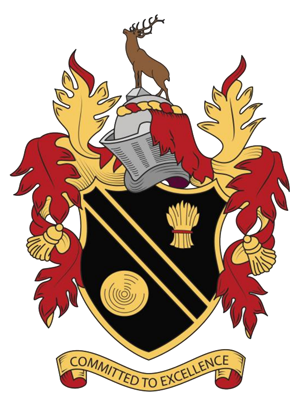Introduction
The Science Faculty aims to fully support the whole school ethos of ‘Success for All’.
Science Aims
- To think logically
- To plan, carry out and evaluate research.
- To question their assumptions and be imaginative in their solutions to problems.
- To become increasingly self-reliant and independent learners.
- To develop and use literacy skills precisely.
- To apply their numeracy skills in the solution of problems.
- To extend their use of ICT and its applications in science.
- To understand the social, spiritual and moral considerations that scientists must apply in the pursuit of knowledge about our world.
- To recognise that the use of scientific knowledge can have both beneficial and harmful effects.
- To understand how scientific discoveries can affect people’s feelings and how cultural differences can influence the extent to which scientific ideas are accepted, used and valued.
Science Objectives
To achieve our aims we will:
- Teach the content stated in the National Curriculum at Key Stages 3 and 4.
- Work with children to set targets for their performance.
- Monitor the progress of all pupils and inform them of their progress in relation to targets.
- Have strategies for intervention for when pupils fail to achieve their targets.
- Plan lessons which meet and address the learning needs and styles of all pupils.
Curriculum
KS3
Year 7
During year 7 pupils will be taught in form groups. Pupils will follow the KS3 program of study for science, aiming at enthusing pupils in how science works and ensuring they are stretched fully in order that they can have a complete understanding and mastery of KS3 science. The year 7 curriculum includes all three disciplines of chemistry, biology and physics.
Each group will have three hours of science lessons per week.
Year 8
During year 8 pupils will continue to be taught in form groups. They will continue to follow the KS3 program of study for science. As part of the year 8 course teachers will prepare pupils for the KS4 science curriculum.
Each group will have 3 hours of science lessons per week.
Year 9
Science is a core curriculum subject and all pupils must follow a science GCSE curriculum. The most able pupils will study Separate Science GCSEs of Biology, Chemistry and Physics and achieve three separate GCSE grades.
Pupils who follow the Combined Science GCSE will study a combined science curriculum and achieve an award equivalent to two GCSEs
All year 9 pupils will have 3 hours of science lessons per week.
KS4
Year 10
During year 10 pupils will continue to study GCSEs science.
Pupils following the Separate Science courses will complete units of learning for each of biology, chemistry and physics.
Pupils following the Combined Science GCSE will complete units of learning in biology, chemistry and physics.
All year 10 pupils will have 6 hours of science lessons per week.
Year 11
During year 11 pupils will complete their GCSE courses during the autumn and spring terms.
Pupils following the Separate Sciences GCSE option will complete the final topics for each of biology, chemistry and physics. During the summer term pupils will then sit two 1 ¾ hour GCSE examinations for each discipline.
Pupils following this option will have 6 hours of science lessons per week.
Pupils following the Combined Science GCSE option will complete the final topics for each of biology, chemistry and physics. During the summer term pupils will sit two 1 ¼ hour GCSE examinations for each discipline.
Pupils following this option will have 4 hours of science lessons per week.
Exam Board
AQA
Staff
Mr Wigham – Head of Faculty/Teacher Science
Mrs Barrow – 2nd In Faculty/ Teacher of Science
Mrs Mason – Teacher of Science
Mr Johnson – Teacher of Science
Mrs Gopalan – Teacher of Science
Mrs Parkinson -Teacher of Science.
Mrs Blundell – Teacher of Science
Mrs G Martin – Teacher of Science

